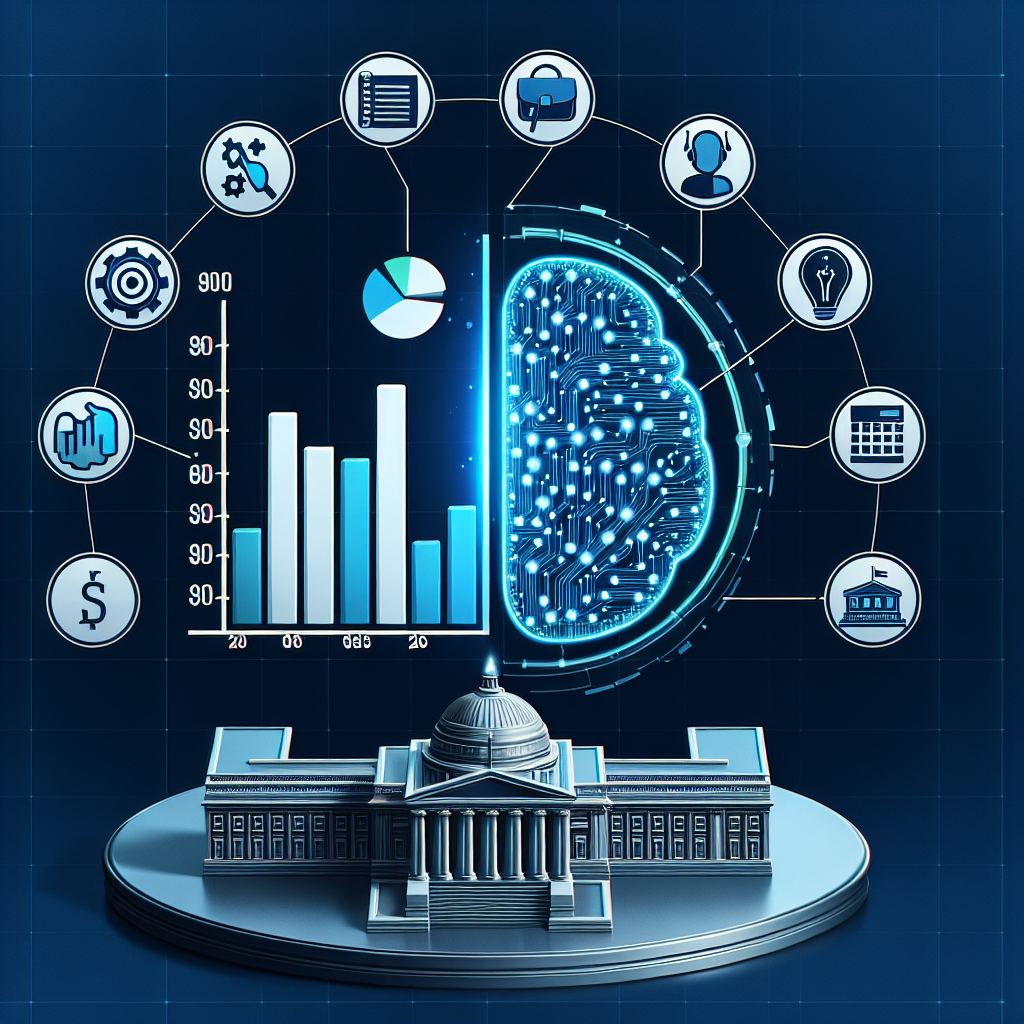Government budgeting is a critical aspect of public administration, as it involves the allocation of funds for various programs, services, and projects that impact the lives of citizens. Traditionally, budgeting has been a labor-intensive process that relies on historical data, expert judgment, and manual calculations. However, with the rise of artificial intelligence (AI) and predictive analytics, governments are now able to make more informed and data-driven decisions when it comes to budget allocation.
AI and predictive analytics are revolutionizing the way governments approach budgeting by providing real-time insights, forecasting future trends, and identifying potential risks and opportunities. These technologies have the potential to transform the budgeting process by improving accuracy, efficiency, and transparency.
One of the key benefits of AI and predictive analytics in government budgeting is the ability to analyze vast amounts of data quickly and accurately. By using machine learning algorithms, governments can identify patterns, trends, and correlations in data that would be difficult, if not impossible, for humans to detect. This allows for more accurate predictions of future revenue and expenditure, as well as a better understanding of the impact of policy decisions on the budget.
Another advantage of AI and predictive analytics in government budgeting is the ability to optimize resource allocation. By using predictive models, governments can identify areas where resources are being underutilized or misallocated and make adjustments accordingly. This can help governments to increase efficiency, reduce waste, and improve the overall effectiveness of public spending.
Furthermore, AI and predictive analytics can also help governments to better manage risk. By analyzing historical data and identifying potential risks and uncertainties, governments can develop strategies to mitigate these risks and ensure that budgets are more resilient to unexpected events. This can help governments to be better prepared for economic downturns, natural disasters, or other unforeseen circumstances that could impact the budget.
Overall, AI and predictive analytics have the potential to revolutionize government budgeting by providing more accurate, efficient, and transparent decision-making processes. By leveraging these technologies, governments can make more informed decisions, optimize resource allocation, and better manage risk, ultimately leading to more effective and efficient public administration.
Frequently Asked Questions (FAQs):
Q: How does AI and predictive analytics work in government budgeting?
A: AI and predictive analytics use machine learning algorithms to analyze vast amounts of data and identify patterns, trends, and correlations that can help governments make more informed decisions when it comes to budget allocation. These technologies can provide real-time insights, forecast future trends, and identify potential risks and opportunities.
Q: What are the benefits of using AI and predictive analytics in government budgeting?
A: Some of the key benefits of using AI and predictive analytics in government budgeting include improved accuracy, efficiency, and transparency. These technologies can help governments to make more informed decisions, optimize resource allocation, and better manage risk, ultimately leading to more effective and efficient public administration.
Q: Are there any challenges to implementing AI and predictive analytics in government budgeting?
A: While AI and predictive analytics offer many benefits, there are also challenges to implementing these technologies in government budgeting. These challenges include data privacy concerns, the need for skilled personnel to interpret and use the data, and the potential for bias in the algorithms used.
Q: How can governments ensure the ethical use of AI and predictive analytics in budgeting?
A: To ensure the ethical use of AI and predictive analytics in budgeting, governments should be transparent about how these technologies are being used, ensure that data privacy and security are protected, and regularly audit and monitor the algorithms to prevent bias or discrimination.
In conclusion, AI and predictive analytics have the potential to revolutionize government budgeting by providing more accurate, efficient, and transparent decision-making processes. By leveraging these technologies, governments can make more informed decisions, optimize resource allocation, and better manage risk, ultimately leading to more effective and efficient public administration.

